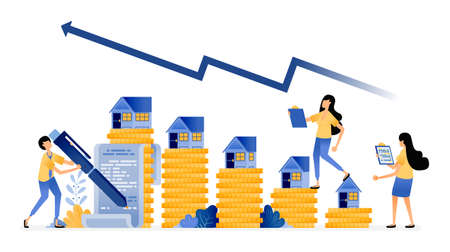Neglecting a Realistic Budget
When setting out on your journey to save for a house down payment, one of the most common—and costly—mistakes is overlooking the importance of a realistic budget. It’s easy to get swept up in dreams of homeownership and set vague savings goals, but without a clear plan anchored in your actual income, spending habits, and local cost of living, those dreams can quickly slip away. Skipping this step is like trying to road trip across the country without a map or GPS; you’re bound to get lost or run out of gas along the way.
Every American city and neighborhood comes with its own unique price tags—not just for homes, but for everyday expenses like groceries, transportation, and entertainment. If you don’t tailor your budget to reflect your true lifestyle and what things really cost where you live, you could end up drastically underestimating how much you need to save each month. This can lead to frustration, delays in reaching your goal, or even dipping into credit cards just to cover basic needs.
The first step is simple: track your monthly income and all your expenses—yes, even those morning lattes or occasional Friday night takeout. Use budgeting tools or apps popular in the U.S., like Mint or YNAB (You Need A Budget), which help categorize your spending and reveal areas where you can cut back. Once you see where your money is going, create a plan that prioritizes saving while still allowing room for life’s little joys. Remember, being honest about what you spend now sets the foundation for achieving that bigger dream down the road.
2. Overlooking Hidden Homeownership Costs
When you’re caught up in the excitement of saving for your dream home, it’s easy to focus solely on the sticker price and forget about the hidden costs that come with homeownership. This oversight can lead to disappointment—or even financial strain—if your savings plan doesn’t account for all the expenses beyond just the down payment. In the U.S., first-time buyers often underestimate how much they’ll need at closing, not to mention ongoing expenses that will keep popping up long after move-in day.
The Real Cost Breakdown
To avoid falling short, make sure you’re planning for these crucial categories:
| Expense Category | Typical Range | Frequency |
|---|---|---|
| Closing Costs | 2%–5% of purchase price | One-time (at purchase) |
| Property Taxes | $1,000–$10,000/year (varies by state/city) | Annual or semi-annual |
| Homeowner’s Insurance | $500–$2,000/year | Annual |
| Maintenance & Repairs | 1%–3% of home value per year | Ongoing/annual |
| HOA Fees (if applicable) | $200–$400/month (varies widely) | Monthly |
Why Planning Ahead Matters
If you don’t factor these costs into your budget, you might find yourself “house poor”—owning a home but struggling to keep up with the bills. Imagine landing your perfect place only to be blindsided by a hefty property tax bill or an unexpected plumbing emergency. That’s why smart savers look beyond the down payment and create a comprehensive savings strategy.
Avoiding Surprises: Your Action Plan
Start by researching average costs in your desired area—don’t just use national averages. Contact local real estate agents or homeowners for up-to-date info. Build a separate fund for maintenance and emergencies so you won’t have to dip into your main savings when life happens. By planning for every step of the journey—not just the starting line—you’ll be better prepared to turn your dream of homeownership into a lasting reality.

3. Relying Too Much on High-Risk Investments
When you’re dreaming of owning your own home, it’s tempting to look for quick ways to grow your down payment savings. In today’s world, stories of overnight crypto millionaires or friends bragging about hot stock picks are everywhere. But let’s get real: putting your hard-earned down payment into volatile stocks or the latest cryptocurrency craze can be a dangerous game—especially when the housing market isn’t going to wait for you.
Timing the Market Is a Gamble
The truth is, markets can swing wildly and unpredictably. You might score big, but you could just as easily see your savings cut in half right before you need that cash. Unlike retirement funds, which have decades to recover from downturns, your house fund probably has a much shorter timeline. If the market tanks just as you’re ready to buy, you could find yourself back at square one.
Liquidity Matters When Opportunity Knocks
Buying a home in America often means moving fast—especially in competitive markets. If your savings are tied up in investments that aren’t easy to cash out, or if selling means locking in a loss, you risk missing out on your dream home altogether. Keeping your down payment somewhere safe and accessible—like a high-yield savings account or a money market fund—can make all the difference when opportunity comes knocking.
Play It Safe with Your Down Payment Fund
There’s nothing wrong with investing for long-term goals like retirement, but when it comes to saving for a house, slow and steady wins the race. Protect your progress by avoiding high-risk bets with money you can’t afford to lose. Remember: a secure down payment brings you closer to moving into that new place—and no amount of risky speculation is worth delaying that dream.
4. Ignoring Your Credit Health
When you’re focused on scraping together enough cash for a down payment, it’s easy to overlook the silent impact your credit score and existing debts have on your homebuying journey. Many first-time buyers make the mistake of assuming that as long as they save enough, they’re set. But in reality, neglecting your credit health can cost you big time—especially when it comes to qualifying for a mortgage and locking in a favorable interest rate.
Why Your Credit Score Matters
Your credit score is one of the key factors lenders use to determine not only if you qualify for a loan but also what interest rate you’ll receive. A difference of just a few points can mean thousands of dollars more paid over the life of your mortgage. Think about it: If your score lands you in a higher risk category, lenders see you as less trustworthy, so they hedge their bets with higher rates.
How Credit Scores Affect Mortgage Rates
| Credit Score Range | Estimated Interest Rate (30-Year Fixed) | Potential Extra Cost Over 30 Years* |
|---|---|---|
| 760-850 | 6.0% | $0 (best rate) |
| 700-759 | 6.25% | $12,000+ |
| 620-699 | 7.0% | $36,000+ |
| Below 620 | 8.5% or higher | $70,000+ |
*Based on a $300,000 mortgage; actual numbers vary by market conditions.
The Debt Dilemma
If you already carry significant debt—like student loans, car payments, or high credit card balances—lenders may offer you less favorable terms or even deny your application altogether. Your debt-to-income ratio is just as important as your credit score when applying for a mortgage.
What You Can Do Now
- Check your credit report regularly for errors and dispute any inaccuracies.
- Aim to pay down high-interest debts first to lower your debt-to-income ratio.
- Avoid opening new lines of credit right before applying for a mortgage.
- Pay bills on time—every missed payment hurts your score.
Bottom line: Saving for your down payment is crucial, but don’t let credit health slip through the cracks. Tending to your credit now can help you secure better rates and keep more money in your pocket over the long run.
5. Setting Unattainable Timelines
It’s natural to want to move into your dream home as soon as possible, but setting unrealistic timelines for saving your down payment can actually backfire. When you pressure yourself with an aggressive savings deadline, you might end up sacrificing your financial stability or making decisions that could hurt you in the long run.
The Downside of Rushing the Process
Pushing yourself too hard can lead to burnout. Saving for a house is a marathon, not a sprint, and trying to cut corners or stretch your budget too thin often leads to frustration and stress. Many people find themselves dipping into emergency funds, neglecting important expenses, or even taking on debt just to keep up with their self-imposed schedule.
Shaky Financial Decisions
When you’re rushing against the clock, it’s easy to overlook crucial details—like skipping a thorough review of your finances or failing to research first-time homebuyer programs that could ease your burden. You might also be tempted to settle for a less-than-ideal property simply because it fits your timeline, not your needs.
Building Realistic Goals
Instead of aiming for an arbitrary finish line, take time to calculate how much you can realistically save each month without compromising your lifestyle or financial security. If it feels overwhelming, remember: slow and steady wins the race. By setting attainable milestones and celebrating small victories along the way, you’ll stay motivated and make smarter choices for your future home.
6. Not Exploring Down Payment Assistance Programs
When saving for your first home, many people get laser-focused on scrimping and sacrificing, but forget to look up and see what help is out there. One of the most common mistakes American homebuyers make is not exploring down payment assistance programs—essentially leaving free money on the table. These programs, offered at the federal, state, or even local level, are designed specifically to give first-time buyers a leg up in one of life’s biggest financial journeys.
Unlocking Hidden Resources
From grants that never need to be repaid to low-interest loans with flexible terms, down payment assistance programs can significantly shrink the time it takes to reach your goal. Yet, too many people miss out because they assume they wont qualify or simply arent aware these options exist. The reality? There are programs tailored for different incomes, professions (think teachers, nurses, veterans), and locations.
Why People Overlook This Opportunity
Sometimes the process seems intimidating—government websites can be confusing and eligibility criteria may look strict at first glance. Other times, pride gets in the way; folks want to do it all on their own. But smart saving isn’t just about pinching pennies—it’s about being strategic and using every tool at your disposal.
A Wise Move: Research & Ask Questions
If you’re serious about avoiding common pitfalls in saving for your down payment, make it a priority to investigate what’s available in your area. Reach out to your state’s housing authority or a HUD-approved counselor. Ask your lender if they work with any local programs. Even a quick online search can open doors you didn’t know existed.
The bottom line? Don’t let hesitation or lack of information cost you thousands of dollars or delay your dream of homeownership. Take advantage of every resource—your future self will thank you for it!

